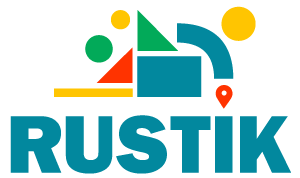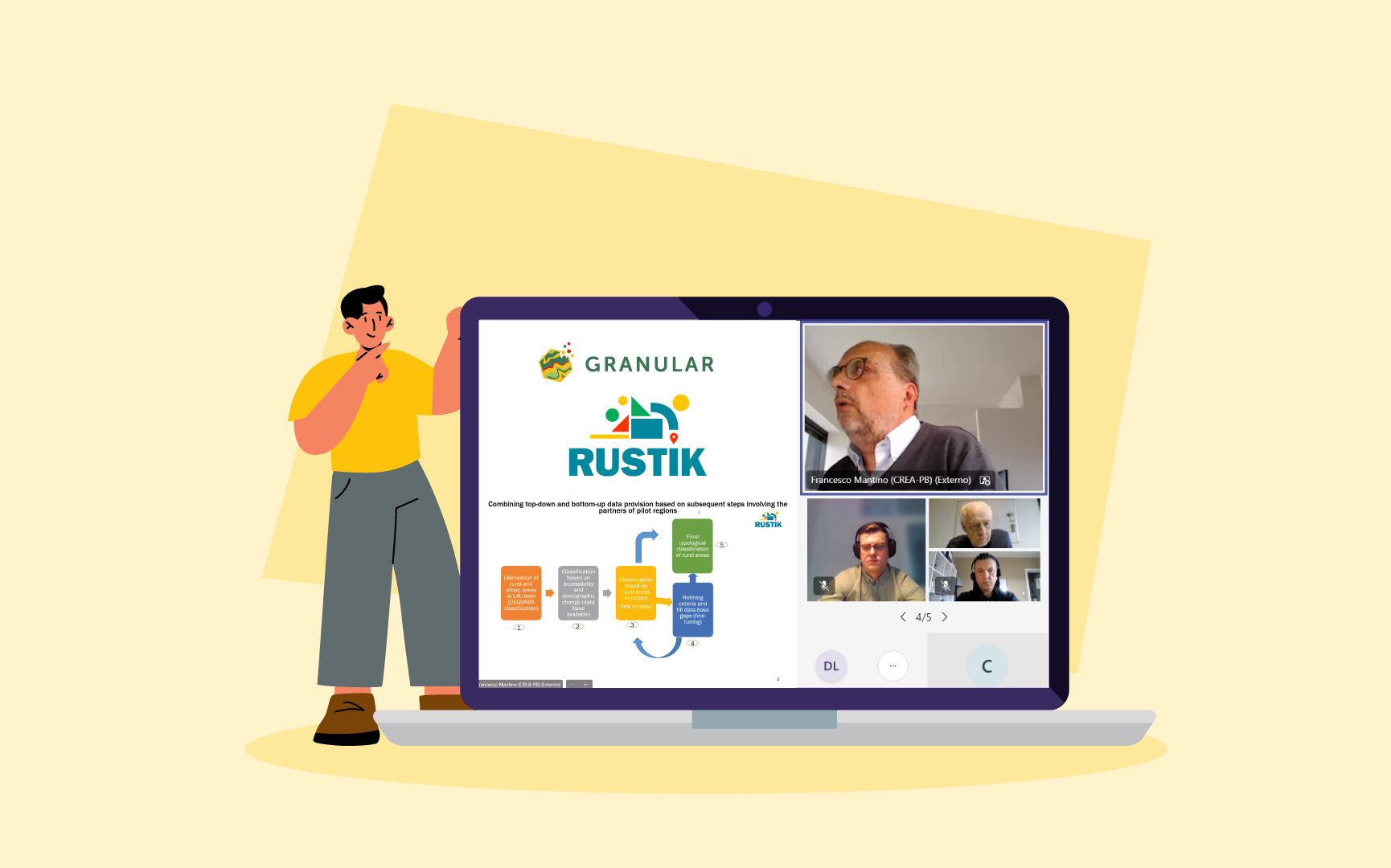In a webinar hosted by the GRANULAR project on February 28, 2024, we witnessed a pivotal moment in the redefinition of our perception of rural areas. This event, organized by the European Association for Innovation in Local Development (AEIDL), marked the 2nd Knowledge Transfer Accelerator activity, bringing together thought leaders, researchers, and practitioners from over 22 EU Member States, the UK, Switzerland, Turkey, and several African countries. Notably, the webinar featured active participation from the RUSTIK project, contributing valuable insights to the discourse.
Historical Context: A Call for Nuanced Understanding
Traditionally, rural areas have been characterized by simplistic metrics such as population density and proximity to urban centers. However, this approach oversimplifies the complex reality of rural spaces, ignoring the diverse functionalities and rural-urban interactions that shape these regions. Recognizing this limitation, the latest EU Council conclusions on the EU’s Long-Term Vision for Rural Areas (LTVRA) emphasized the need for a more profound understanding of rural diversity. This is seen as a crucial step toward fostering place-based rural development and aligning with EU policies and strategies, including Cohesion Policy and the Common Agricultural Policy.
The Webinar’s Vision: Functional Rural Areas as the New Frontier
The webinar aimed to introduce a transformative perspective on rural diversity, focusing on the lens of rural (multi)functionalities. A ‘Scoping report on rural typologies across Europe’ provided an analysis of existing rural typologies, setting the stage for a conceptual framework centered on functionalities and synergies with urban territories. Leveraging insights from the Horizon Europe RUSTIK and GRANULAR projects, the webinar initiated a crucial discussion on the necessity for more comprehensive rural typologies for assessment and statistical purposes at both EU and national levels.
Insights Unveiled: A Glimpse into the Webinar Presentations
The agenda featured enlightening presentations that deepened our understanding of this paradigm shift:
-
Overview of Rural Typologies in Europe by Mats Stjernberg (Nordregio):
Unveiling findings from the ‘Scoping report on rural typologies across Europe, ‘ Stjernberg provided a comprehensive state-of-the-art analysis of territorial typologies at the EU level and across 27 European regions.
-
Rural Multi-Functionalities by Henk Oostindie & Bettina Bock (Wageningen University):
Demonstrating the integration of multi-spatiality and multi-functionalities into a Rural Diversity Compass, Oostindie and Bock showcased a prototype that categorizes rural functionalities into residential, productive, recreational, and environmental components.
-
Developing a Definition of Functional Rural Areas by Lewis Dijkstra (Joint Research Centre):
Dijkstra introduced the recently-developed EU definition for Functional Rural Areas (FRA), offering an analytical picture of rural territories and service provision.
-
Functional Rural Areas and Beyond by Francesco Mantino (CREA):
Mantino, author of RUSTIK’s report on “Methodological framework to define Functional Rural Areas and rural transitions,” emphasized the need for a new definition of “rural” based on functionalities, neo-endogenous theories, and network connectivity.
Reflecting on the Future: Redefining Ruralities
The webinar culminated in a thought-provoking round table discussion where speakers reflected on how redefining ruralities can enhance rural understanding and policy-making. The consensus was that a functionality-based approach provides a more nuanced and granular picture of rural areas, acknowledging their diverse needs and opportunities.
Looking Ahead: The Path to a Functional Future
As we navigate the post-2027 programming period, the insights from this webinar echo the sentiments expressed by the High-Level Group on the Future of EU Cohesion Policy. Identifying spatially concentrated challenges and understanding multiple dynamics emerge as key challenges for future EU territorial development policies.
In conclusion, the webinar has set the stage for a new era in rural development. By shifting our focus from traditional classifications to a functionality-based approach, we can unlock the true potential of rural areas. The collaboration between GRANULAR and RUSTIK, along with the active engagement of experts from diverse regions, showcases the collective effort towards a more comprehensive and insightful understanding of rural landscapes. The journey has just begun, and the road to functional rural areas promises to be transformative for the future of rural policy and development.
For more detailed information you can watch the webinar recording!
Join us in reshaping the narrative around rural areas and contributing to the Rural Renaissance!

